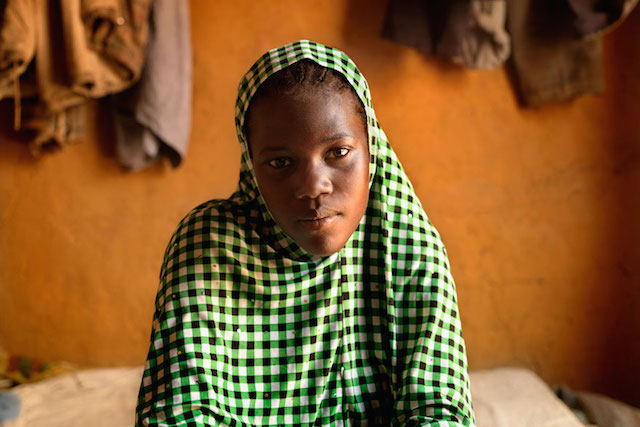NEW YORK (IDN) – The United Nations has launched a new multi-country initiative to speed up action to end child marriage by 2030 and protect the rights of millions of the most vulnerable girls around the world.
Announcing the joint initiative on the International Women’s Day March 8, the UN Children’s Emergency Fund (UNICEF) and the UN Population Fund (UNFPA) said the Global Programme to Accelerate Action to End Child Marriage will involve families, communities, governments and young people.
The UNFPA-UNICEF Global Programme to Accelerate Action to End Child Marriage is being supported by Canada, the European Union, Italy, Netherlands, and the UK.
This is part of a global effort to prevent girls from marrying too young and to support those already married as girls in 12 countries across Africa, Asia and the Middle East where child marriage rates are high.
“Choosing when and whom to marry is one of life’s most important decisions. Child marriage denies millions of girls this choice each year,” said UNFPA Executive Director Dr. Babatunde Osotimehin. “As part of this global programme, we will work with governments of countries with a high prevalence of child marriage to uphold the rights of adolescent girls, so that girls can reach their potential and countries can attain their social and economic development goals.”
The new global programme will focus on proven strategies, including increasing girls’ access to education and health care services, educating parents and communities on the dangers of child marriage, increasing economic support to families, and strengthening and enforcing laws that establish 18 as the minimum age of marriage. The programme will also emphasize the importance of using robust data to inform policies related to adolescent girls.
“The world has awakened to the damage child marriage causes to individual girls, to their future children, and to their societies,” said UNICEF Executive Director Anthony Lake. “This new global programme will help drive action to reach the girls at greatest risk – and help more girls and young women realize their right to dictate their own destinies. This is critical now because if current trends continue, the number of girls and women married as children will reach nearly 1 billion by 2030 – 1 billion childhoods lost, 1 billion futures blighted.”
Child marriage is a violation of the rights of girls and women. Girls who are married as children are more likely to be out of school, suffer domestic violence, contract HIV/AIDS and die due to complications during pregnancy and childbirth. Child marriage also hurts economies and leads to intergenerational cycles of poverty.
The global community demonstrated strong commitment to end child marriage by including a target on eliminating it and other harmful practices in the Sustainable Development Goals.
The fifth SDG has set six targets: end all forms of discrimination against all women and girls everywhere; eliminate all forms of violence against all women and girls in the public and private spheres, including trafficking and sexual and other types of exploitation; and eliminate all harmful practices, such as child, early and forced marriage and female genital mutilation.
The fourth target is to recognize and value unpaid care and domestic work through the provision of public services, infrastructure and social protection policies and the promotion of shared responsibility within the household and the family as nationally appropriate. The fifth aims at ensuring women’s full and effective participation and equal opportunities for leadership at all levels of decision-making in political, economic and public life.
With the sixth target, SDG 5 wants to:
(a) ensure universal access to sexual and reproductive health and reproductive rights as agreed in accordance with the Programme of Action of the International Conference on Population and Development and the Beijing Platform for Action and the outcome documents of their review conferences;
(b) undertake reforms to give women equal rights to economic resources, as well as access to ownership and control over land and other forms of property, financial services, inheritance and natural resources, in accordance with national laws:
(c) enhance the use of enabling technology, in particular information and communications technology, to promote the empowerment of women; and (d) adopt and strengthen sound policies and enforceable legislation for the promotion of gender equality and the empowerment of all women and girls at all levels. [IDN-InDepthNews – 8 March 2016]
IDN is the flagship of International Press Syndicate.
Photo: Nafissa, 17 from Niger, was married at 16. Three months after marrying she became pregnant. She gave birth to a still born baby. Photo: UNICEF/Marieke van der Velden.

